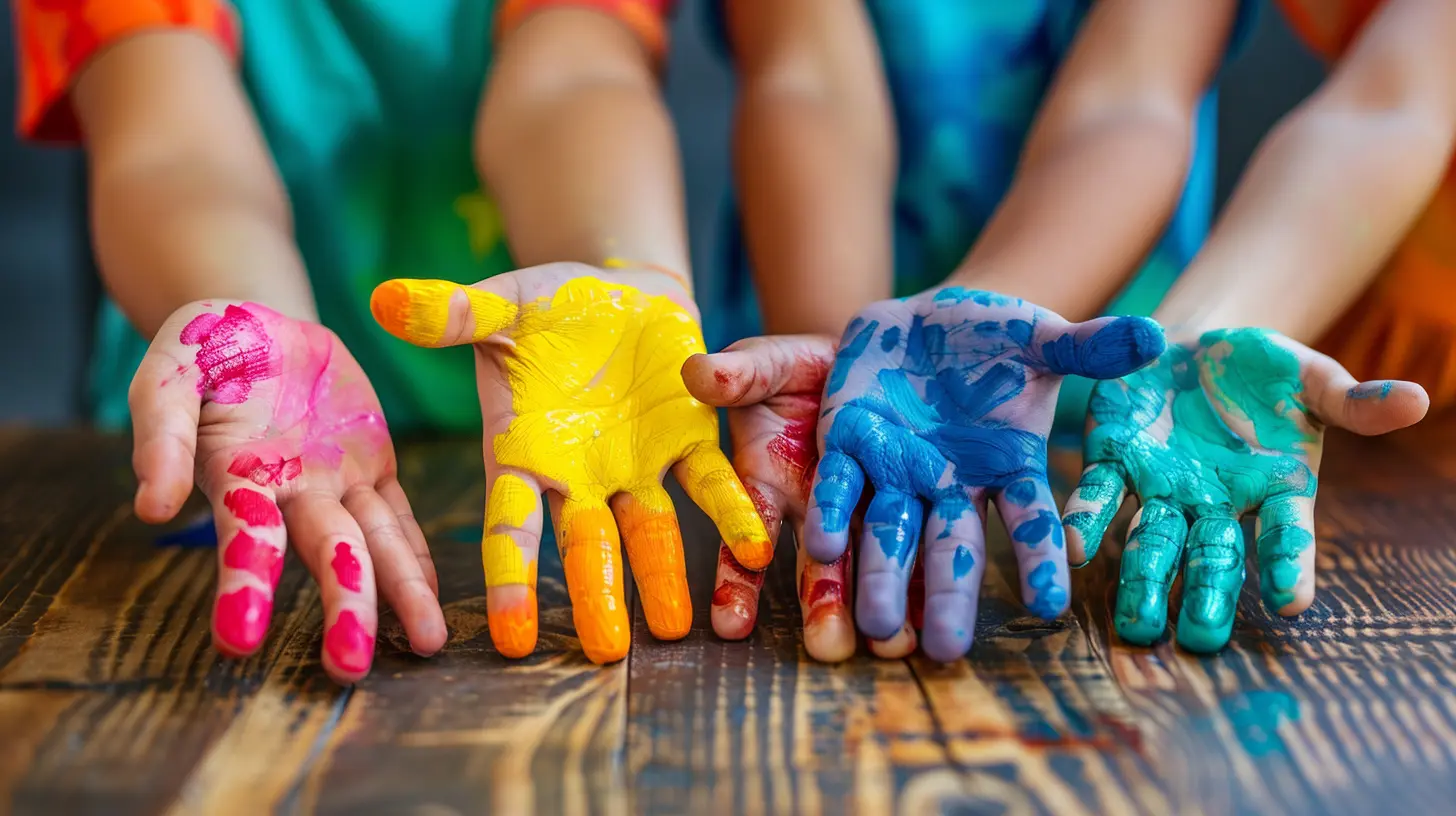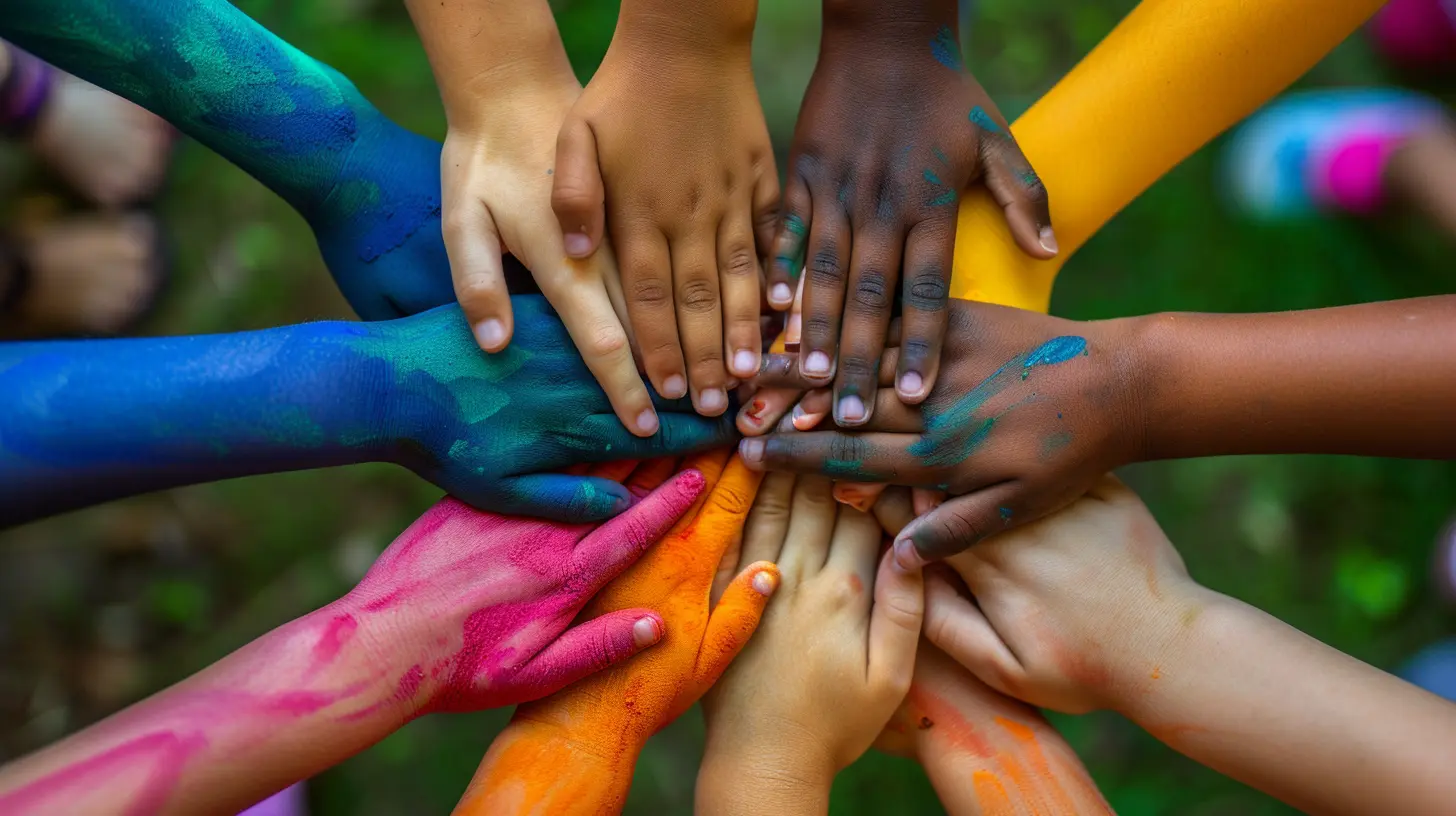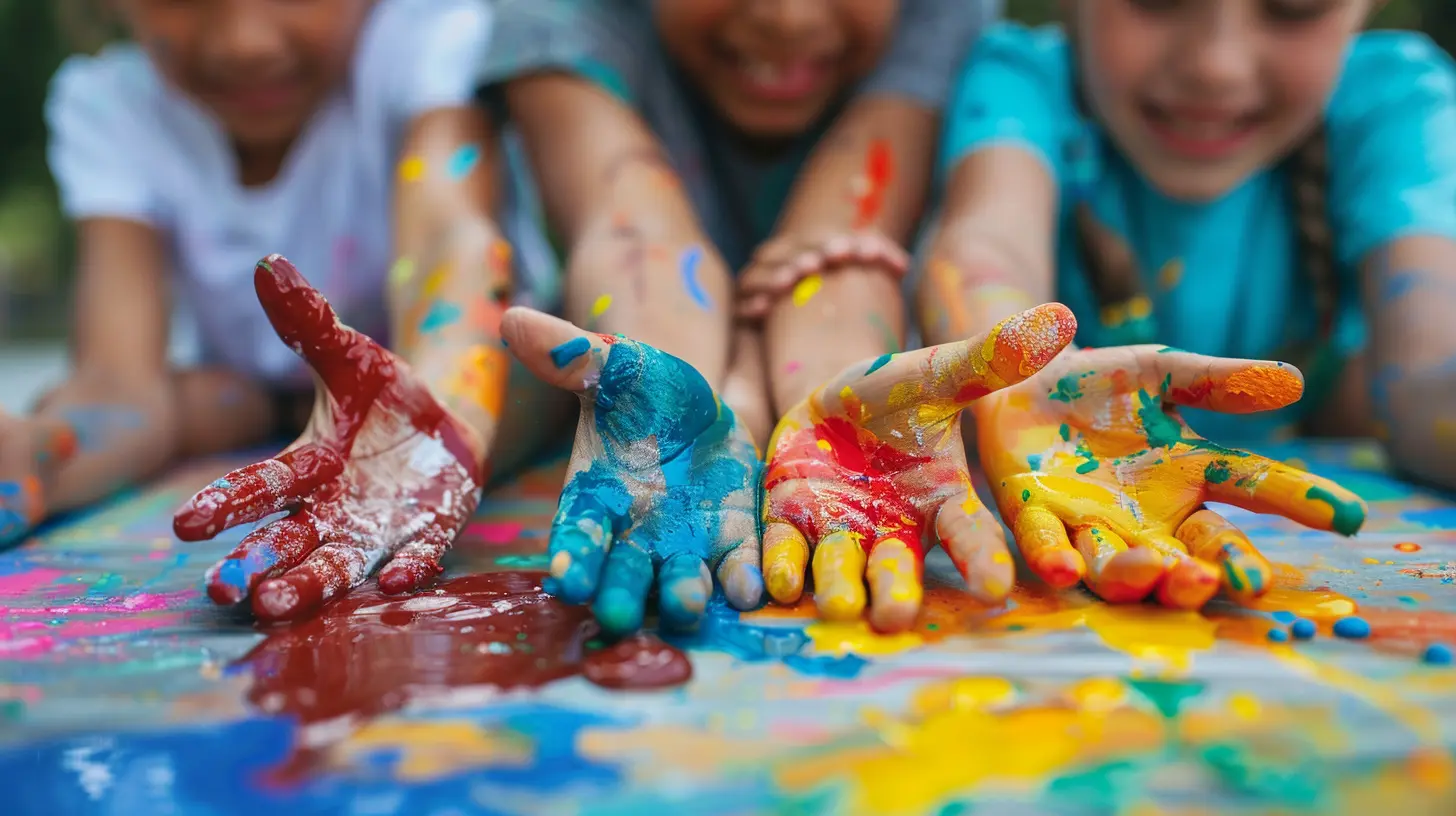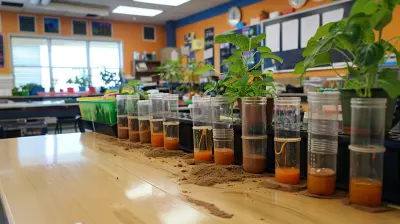22 May 2025
Creating an inclusive and diverse classroom isn't just a choice—it’s a necessity. Every student deserves to feel valued, respected, and heard, regardless of their background, culture, or abilities. But how do we ensure every child feels included? The answer lies in meaningful activities that celebrate differences and promote unity.
Let’s dive into some engaging, practical, and fun activities that can help foster inclusivity and diversity in the classroom. 
Why Inclusivity and Diversity Matter in the Classroom
Before we get into the activities, let's talk about why inclusivity and diversity are crucial.- Boosts Confidence: When students feel included, they gain confidence in expressing themselves.
- Enhances Learning: A diverse classroom brings different perspectives, making learning more enriching.
- Encourages Empathy: Interacting with different cultures and backgrounds helps kids become more compassionate.
- Prepares for the Real World: The world is a mix of different people—why not start embracing that early?
Now, let’s look at some effective activities to make your classroom more inclusive and diverse. 
1. Culture Sharing Days
One of the best ways to promote diversity is by celebrating it! Set up a Culture Sharing Day where students can showcase their heritage.How It Works:
- Each student picks a country or culture (it can be their own or one they admire).- They bring something special—a dish, traditional attire, a dance, or even a short story.
- Everyone takes part in learning about different cultures through food, music, and traditions.
Why does this work? Because it turns learning into a firsthand experience. Instead of reading about cultures, students live them! 
2. Storytelling with Diverse Books
Books are windows to the world. Introducing stories with diverse characters, authors, and themes can open students' minds to different perspectives.How It Works:
- Create a diverse reading corner filled with books representing different cultures, abilities, and family structures.- Assign students books from different backgrounds and have them share their thoughts afterward.
- Encourage discussions on what they learned, how they felt, and how they relate to the characters.
By doing this, you’re not just teaching inclusivity—you’re making it part of their everyday life. 
3. “I Am Unique, Yet Connected” Activity
This simple yet powerful activity highlights how we are all different but connected.How It Works:
1. Give each student a piece of paper and ask them to write:- Their name
- Something unique about them
- A hobby they enjoy
- A value they strongly believe in
2. Once done, mix the papers and randomly distribute them.
3. Students read out what’s written (without saying the name), and the class guesses who it belongs to.
4. At the end, show how despite our differences, we always find common ground.
This reinforces the idea that while we all have unique identities, we share many human experiences.
4. Language Learning Phrases
Learning a few words in different languages can make students feel included and appreciated.How It Works:
- Assign a “Language of the Week.”- Teach simple words like hello, thank you, and goodbye in that language.
- Encourage students to use these words when greeting each other.
- Invite bilingual students to teach their classmates a few fun phrases.
It’s a small but powerful gesture that makes language diversity shine!
5. “Bias Awareness” Activity (Through Role Play)
Let’s face it—bias exists. Helping students recognize and break stereotypical thinking is crucial.How It Works:
- Divide students into small groups.- Assign each group a scenario where bias or exclusion happens (e.g., a new student being ignored because they dress differently).
- Have them act out the situation and then replay it, correcting the bias.
- Discuss how it felt and what they learned.
This activity teaches students to reflect on their behavior and understand the impact of their words and actions.
6. Collaborative Art Project (“We Are One”)
Art is a universal language that can bring students together.How It Works:
- Provide each student with a small canvas or paper.- Ask them to paint/draw something that represents them—it could be their culture, family, values, or dreams.
- Collect all the drawings and assemble them into a big mural.
- Display the artwork in the classroom as a reminder that everyone has a place in the classroom community.
Seeing their artwork contribute to a bigger picture symbolizes unity in diversity.
7. Guest Speakers from Different Backgrounds
Real-life stories bring inclusivity lessons to life.How It Works:
- Invite guest speakers from diverse backgrounds—activists, differently-abled individuals, immigrants, or people with unique life experiences.- Let students ask questions and engage in meaningful conversations.
- Encourage discussions on the lessons they learned from the talk.
Sometimes, hearing it from real people makes a deeper impact than just reading about it.
8. Pronoun and Name Respect Activity
Respecting how someone identifies is a huge part of inclusivity.How It Works:
- At the beginning of the year, let students share their preferred names and pronouns.- Play a name pronunciation game where each student repeats other students’ names correctly.
- Discuss why respecting names and pronouns matters.
No one likes being misrepresented. This activity instills the habit of respecting identity and individuality.
9. “A Day in My Shoes” Perspective Activity
Empathy grows when we step into someone else’s world.How It Works:
- Assign students different roles (e.g., a person with a disability, a refugee, or someone from a different background).- Ask them to describe a day in their life as that person.
- Discuss how life might differ for them compared to others.
This activity encourages understanding beyond personal experiences.
10. The “Kindness Chain” Challenge
Kindness is the foundation of inclusivity.How It Works:
- Give each student a strip of paper.- Whenever they do a kind act (especially towards someone different from them), they write it on the strip.
- Link the strips together to form a kindness chain.
- Watch the chain grow over time as kindness spreads!
Simple actions can make a huge difference in making classrooms feel safe and welcoming.
Final Thoughts
Promoting inclusivity and diversity isn’t a one-time lesson—it’s a continuous practice. These activities help create an environment where every student feels valued and respected.By embracing our differences and celebrating what makes each of us unique, we help shape a world where acceptance is the norm. And isn’t that the kind of world we all want?
Try out these activities in your classroom and see the amazing transformation unfold!









Ulrich Ramirez
Great insights! Implementing diverse activities not only enriches the learning experience but also fosters a more inclusive environment where every student feels valued and supported. Essential for modern education!
December 21, 2025 at 1:59 PM